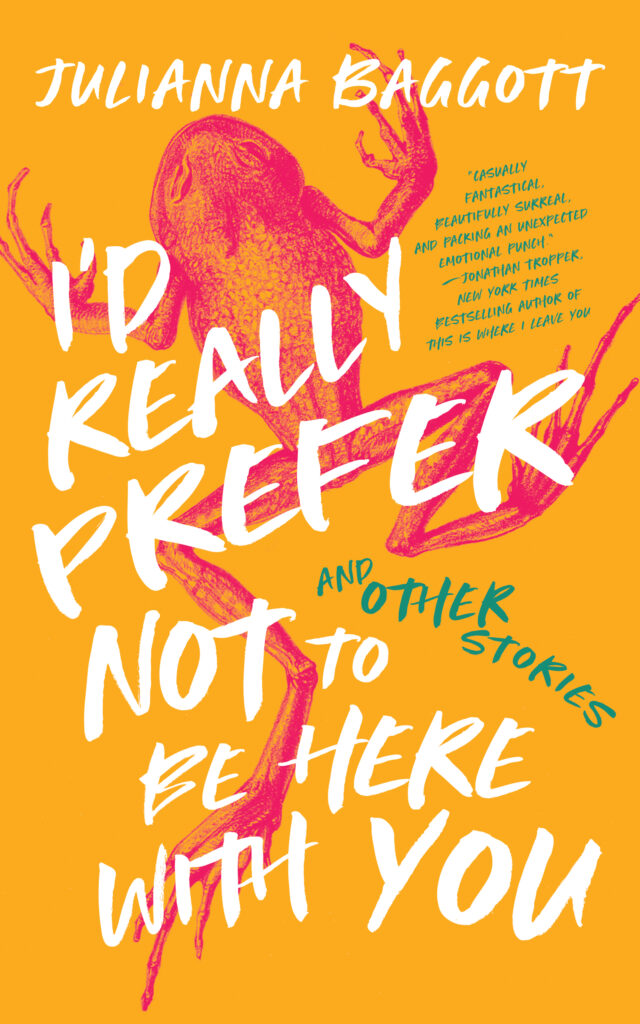I’D REALLY PREFER NOT TO BE HERE WITH YOU and Other Stories

by Julianna Baggott
Black Stone Publishing
(www.BlackstonePublishing.com)
2023, 287 pages, $25.99
ISBN 9-798-20087-356-2
Click Here to Purchase
This single-author story collection is about recompense, closure and forgiveness. It’s really fabulist realist fiction that is existential, about yearning for a world well removed from the chaos that is life. In “Welcome to Oxhead,” adults suddenly die, dropping like flies everywhere. Was it a virus that attacked them, or do other conspiracies exist? In the title story, is it about the fluidity and unreliability of personal relationships? Or about the loss of those we thought we cared about? A man is admired/hated/appreciated by a woman who also attends therapy sessions for the strife we call life. In “How They Got In,” the murders of children and the facts of the crime are known, except for the reasons for the violence. And it’s the story of one girl murdered by the serial killer and of her wandering, questioning ghost. In “The Now of Now,” a girl and her boyfriend realize they have an extraordinary power to stop time. How they utilize it, and how the power catches up to them, make “Now” a tantalizing read. In “The Versions,” Ben and Artrice are mere representations, robots, who are attending a wedding in which they cannot be humanly present. Thus, they are robots. They haven’t met, until now. Two stories about forgiveness and about a mother’s suicide and what is behind it are “Nest” and “Backwards.” It is about the closure we see concerning a parent (a father, in this case) who is using an end-of-life therapy that makes dying of young age, aging backward a decade a day. This experience gives the man’s daughter some much-needed perspective. “Backwards” is my favorite story in the collection. “Portals” is a story about a town in which tunnels to another space-time exists, a metaphor for life’s comings and goings. In “The Knockoffs,” Alyssa writes to Bradley Cooper, the actor, whom she claims is her biological father, because her life was the result of in-vitro conception. In “Inkmorphs,” after a woman receives a tattoo, it becomes something much more.

